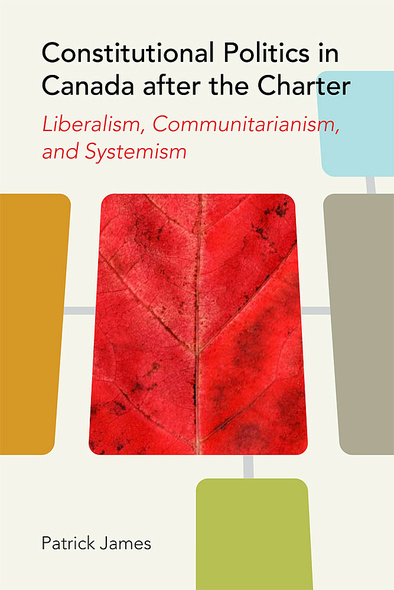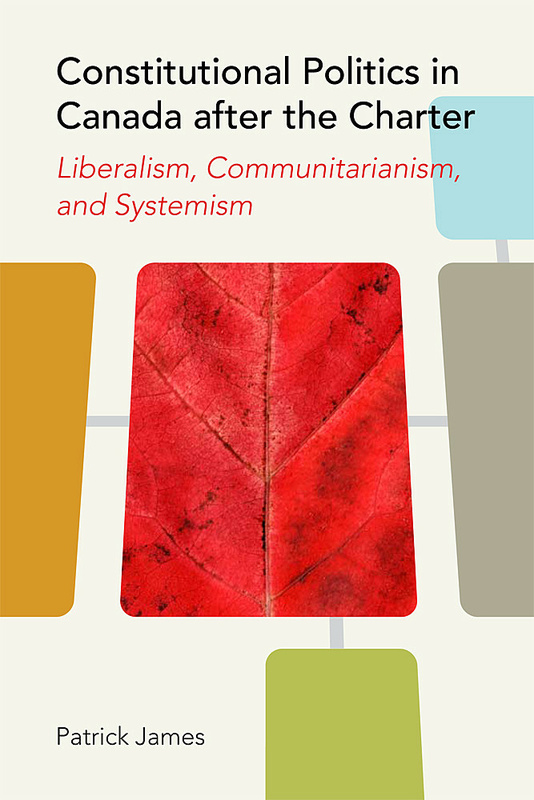
Constitutional Politics in Canada after the Charter
Liberalism, Communitarianism, and Systemism
The Charter of Rights and Freedoms was introduced in 1982. Since then, Canada has experienced more than twenty-five years of constitutional politics and countless debates about whether the Canadian federation is integrating or disintegrating. To date, however, there has been no systematic attempt to identify or evaluate general theories about the evolution of constitutional politics in Canada.
Using systemism, a concept borrowed from the philosophy of science, Patrick James identifies and then assesses five theories that fall either into the liberal paradigm (negative identity, megapolitics, or institutional imbalance) or its communitarian counterpart (asymmetric federalism or the citizens’ constitution). He examines these theories in the context of major issues – Aboriginal peoples, women, minority groups, the role of courts, and regional fragmentation – and he discusses debates among advocates and critics of each theory in order to work toward a greater understanding of Canada’s long-standing constitutional wrangling.
By adding clarity to familiar debates, this succinct assessment of major writings on constitutional politics sharpens our vision of the past – and the future – of the Canadian federation. Constitutional Politics in Canada after the Charter will be of interest to students and practitioners of Canadian political science and law or anyone who wants to understand constitutional affairs in Canada or the outside world.
This book will be of interest to students and practitioners of Canadian political science and law or anyone who wants to understand constitutional affairs in Canada or the outside world.
Patrick James provides a highly intelligent and balanced synthesis of twenty-five years of constitutional politics literature in Canada ... He also develops an innovative theoretical approach (systemism) to evaluate competing constitutional theories and to test the theoretical significance of competing constitutional approaches. Simply put, as an exercise in theory building, testing, and evaluation, this book makes a unique contribution to the state of Canadian politics and constitutional studies.
1 Constitutional Politics in Canada: The Charter and Beyond
2 Systemism and Canadian Constitutional Politics
3 Identifying Concepts and Theories
4 Liberal Theories: Negative Identity, Megapolitics, and Institutional Imbalance
5 Communitarian Theories: Asymmetrical Federalism and the Citizens’ Constitution
6 A Critique and Comparison of Liberal and Communitarian Theories
7 Conclusion
Notes
References
Index









